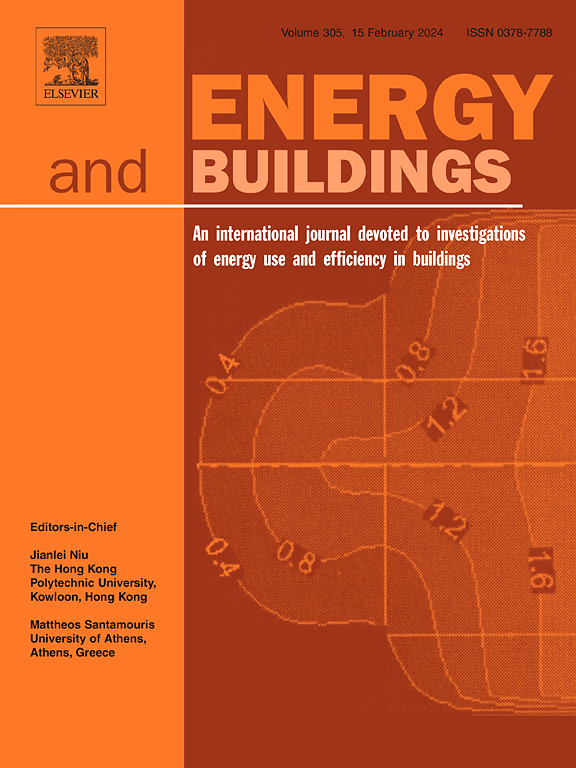From global evidence to local action plan: a novel building decarbonization maturity scale and roadmap for nZEB office buildings in developing contexts − case of Türkiye
IF 7.1
2区 工程技术
Q1 CONSTRUCTION & BUILDING TECHNOLOGY
引用次数: 0
Abstract
To effectively combat climate change, various policies and strategies are being developed to reduce emissions by 2050. The construction sector assumes a pivotal role in achieving decarbonization targets. It is imperative to acknowledge the potential of practices in developing countries, which can provide the critical part of carbon reduction on a global scale. In this context, Nearly Zero Energy Buildings (nZEB) are attracting global attention as a key component of sustainable construction and urban regeneration. Despite high level of energy efficiency and potential to utilize renewable energy, nZEBs have not found widespread application in developing countries. This study benefits from a systematic review of the whole-life decarbonization process of nZEB office buildings. The study evaluated policy frameworks, implementation, and potential emission reduction strategies through energy efficiency measures, material selection, and the integration of renewable energy. In response, the study proposes a structured, context-sensitive decarbonization maturity scale and roadmap to guide policy and practice in developing countries and utilized Türkiye as a case study example. The findings reveal that Türkiye’s current nZEB definition positions it at Level 2 (Emerging) on the decarbonization maturity scale. The country’s high carbon intensity signals the urgency of prioritizing demand reduction and efficiency. Despite enhancements, nZEB offices in Türkiye exhibit high carbon emissions, with operational emissions ranging from 7.5 to 35 kgCO2-eq/m2/year and embodied carbon from 182 to 201 kgCO2-eq/m2. As a result, the maturity scale identifies leverage points offering a mechanism to benchmark progress and accelerate climate action in line with international examples approaching Level 5.

从全球证据到地方行动计划:发展中环境下nZEB办公楼的新型建筑脱碳成熟度尺度和路线图-以泰国为例
为了有效应对气候变化,各国正在制定各种政策和战略,以在2050年之前减少排放。建筑业在实现脱碳目标方面发挥着关键作用。必须承认发展中国家的实践潜力,它们可以在全球范围内提供碳减排的关键部分。在这种背景下,近零能耗建筑(nZEB)作为可持续建筑和城市更新的关键组成部分,正引起全球的关注。尽管具有很高的能源效率和利用可再生能源的潜力,但nzeb尚未在发展中国家得到广泛应用。本研究得益于对nZEB办公楼全寿命脱碳过程的系统回顾。该研究通过能源效率措施、材料选择和可再生能源的整合评估了政策框架、实施和潜在的减排战略。为此,本研究提出了一个结构化的、上下文敏感的脱碳成熟度尺度和路线图,以指导发展中国家的政策和实践,并以 rkiye作为案例研究示例。研究结果显示, rkiye目前的nZEB定义将其定位为脱碳成熟度量表的第2级(新兴)。该国的高碳强度表明,迫切需要优先考虑减少需求和提高效率。尽管有所改进,但新西兰新能源银行在新西兰的办事处仍表现出高碳排放,运营排放量在7.5至35千克二氧化碳当量/平方米/年之间,隐含碳在182至201千克二氧化碳当量/平方米之间。因此,成熟度量表确定了杠杆点,提供了一种机制,可以根据接近第5级的国际例子对进展进行基准测试,并加速气候行动。
本文章由计算机程序翻译,如有差异,请以英文原文为准。
求助全文
约1分钟内获得全文
求助全文
来源期刊

Energy and Buildings
工程技术-工程:土木
CiteScore
12.70
自引率
11.90%
发文量
863
审稿时长
38 days
期刊介绍:
An international journal devoted to investigations of energy use and efficiency in buildings
Energy and Buildings is an international journal publishing articles with explicit links to energy use in buildings. The aim is to present new research results, and new proven practice aimed at reducing the energy needs of a building and improving indoor environment quality.
 求助内容:
求助内容: 应助结果提醒方式:
应助结果提醒方式:


